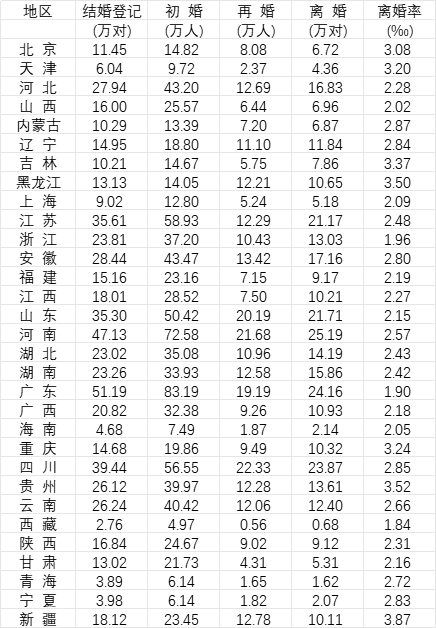在现代经济中,房地产产业是一个极其重要的领域,对于国家的经济发展和人民的生活水平起着至关重要的作用。本文将从不同角度探讨房地产产业和房地产行业的重要性和影响。

一、房地产产业的重要性和影响
房地产产业是一个涵盖房地产开发、建筑施工、房地产销售和房地产服务等多个环节的综合性行业。它在经济增长、就业创造和土地利用等方面都发挥着巨大的作用。
房地产产业是国民经济的重要支柱。通过房地产开发和建筑施工,不仅可以创造大量就业机会,提高就业率,还可以带动相关产业的发展,如建材、家具等行业。房地产销售和房地产服务也为经济增长作出了重要贡献。
房地产产业是国家财政的重要来源。在许多国家,土地出让和房地产交易都需要缴纳相关税费,这些税费成为国家财政收入的重要组成部分。房地产产业的繁荣也会带动相关行业的发展,增加税收收入。
房地产产业对于人民生活水平的提高和社会发展的推动起着重要作用。房地产行业的繁荣意味着更多的住房供应,可以满足人们的居住需求,改善居住环境。房地产产业的发展还能带动城市建设和基础设施建设,提升城市形象和品质。
二、房地产行业的发展与挑战
房地产行业的发展受到多种因素的影响,包括宏观经济政策、市场需求、政府监管等。房地产行业也面临着一些挑战。
房地产市场的波动性较大,容易受到宏观经济政策的影响。政府的调控政策和宏观经济形势的改变,都会对房地产市场产生较大影响。房地产企业需要密切关注政策变化,做好市场预判和风险管理。
房地产行业面临着土地资源的供给限制和土地成本的上升。由于土地资源的有限性,房地产企业在项目开发过程中面临着土地供应的竞争和成本的压力。房地产企业需要在土地选择和项目开发中具备较高的经济智慧和市场洞察力。
房地产行业的可持续发展和环境保护也是一个重要课题。随着人们对环境问题的关注度提高,房地产企业需要在项目规划和建设过程中注重环境保护,推进绿色建筑和可持续发展。
三、展望房地产产业的未来发展
房地产产业作为一个重要的经济支柱和社会发展推动者,未来仍然有着巨大的发展空间和潜力。
随着人口的增长和城市化进程的加速,对住房和城市基础设施的需求将持续增加,房地产行业将继续保持较高的增长势头。
科技的发展将为房地产产业带来新的机遇和挑战。智能化、互联网和大数据等技术的应用将改变房地产行业的运作方式,提升效率和服务质量。
可持续发展和环境保护将成为房地产产业的重要发展方向。绿色建筑和节能环保的理念将得到更多的关注和应用,推动房地产行业向更加环保和可持续的方向发展。
房地产产业和房地产行业在国民经济发展和社会生活中扮演着极其重要的角色。它不仅是经济增长的重要驱动力,也是改善人民生活水平和促进社会发展的重要手段。随着科技的进步和社会需求的变化,房地产产业将面临新的机遇和挑战,但它的地位和影响力将持续存在。
Real Estate Industry and Real Estate Sector
In modern economy, the real estate industry is a crucial sector that plays a vital role in the economic development of a country and the living standards of its people. This article aims to explore the importance and impact of the real estate industry and the real estate sector from different perspectives.
1. Importance and Impact of the Real Estate Industry
The real estate industry is a comprehensive sector that covers real estate development, construction, sales, and services. It plays a significant role in economic growth, job creation, and land utilization.
Firstly, the real estate industry serves as a pillar of the national economy. It creates numerous employment opportunities and stimulates the development of related industries such as building materials and furniture through real estate development and construction. In addition, real estate sales and services make substantial contributions to economic growth.
Secondly, the real estate industry is a significant source of national revenue. In many countries, land sales and real estate transactions require the payment of related taxes and fees, which contribute to the national fiscal income. Moreover, the prosperity of the real estate industry drives the development of related industries, leading to increased tax revenue.
Thirdly, the real estate industry plays a crucial role in improving the living standards of the people and promoting social development. The boom in the real estate sector implies an increased housing supply, meeting people's residential needs and improving living environments. Furthermore, the development of the real estate industry also drives urban construction and infrastructure development, enhancing the image and quality of cities.
2. Development and Challenges in the Real Estate Sector
The development of the real estate sector is influenced by various factors such as macroeconomic policies, market demands, and government regulations. Additionally, the real estate industry also faces several challenges.
Firstly, the real estate market is highly volatile and easily affected by macroeconomic policies. Changes in government regulation and macroeconomic conditions have significant impacts on the real estate market. Therefore, real estate enterprises need to closely monitor policy changes, make market predictions, and manage risks effectively.
Secondly, the real estate industry faces restrictions on the supply of land resources and rising land costs. Due to the limited availability of land resources, real estate enterprises face competition for land supply and cost pressures during project development. As a result, real estate enterprises need to possess high economic intelligence and market insights in land selection and project development.
Thirdly, sustainable development and environmental protection are essential issues in the real estate sector. With the increasing attention to environmental issues, real estate enterprises need to prioritize environmental protection in project planning and construction, promoting green buildings and sustainable development.
3. Prospects for the Future Development of the Real Estate Industry
As an important economic pillar and driver of social development, the real estate industry still holds enormous potential for future growth.
Firstly, with population growth and the acceleration of urbanization, the demand for housing and urban infrastructure will continue to increase, maintaining the high growth momentum of the real estate sector.
Secondly, technological advancements will bring new opportunities and challenges to the real estate industry. The application of technologies such as smart systems, the internet, and big data will transform the operational mode of the real estate sector, enhancing efficiency and service quality.
Lastly, sustainable development and environmental protection will become crucial directions for the real estate industry. The concepts of green buildings and energy conservation will receive more attention and application, promoting the industry's transition towards environmental friendliness and sustainability.
To conclude, the real estate industry and the real estate sector play vital roles in the economic development and social life of a country. They are not only important drivers of economic growth but also essential means of improving people's living standards and promoting social development. With technological advancements and changing societal demands, the real estate industry will encounter new opportunities and challenges, but its status and influence will continue to exist.
Word Count 905
房地产与其他行业的不同

您是否曾想过,房地产与其他行业之间的差异到底有多大?作为一个经济生活中不可或缺的领域,房地产行业常常受到人们的关注与研究。本文将从不同的角度探讨房地产与其他行业的不同之处,并深入剖析其影响和意义。
1. 房地产行业的特点
2. 房地产与制造业的差异
3. 房地产与服务业的差异
4. 房地产与金融业的差异
5. 总结与展望
房地产行业的特点:
房地产作为一种特殊的商品,具有稀缺性和持续性的特点,不同于其他生产型行业。它的交易周期相对较长,涉及到大量的投资和风险。房地产行业还与土地、建筑、设计、销售等多个环节紧密相关,这使得它具有独特的运营模式和发展路径。
房地产与制造业的差异:
房地产行业与制造业的最大不同在于产品的本质。制造业生产的产品可以通过标准化和大规模生产来实现成本降低和效率提高,而房地产行业的产品是独一无二的,无法完全复制。制造业通常以产品的质量和技术创新为核心竞争力,而房地产行业则更注重地段、环境和社区等因素的综合。
房地产与服务业的差异:
尽管房地产行业与服务业有一定的联系,但其本质上仍有明显的不同。服务业的主要特点是无形性,即服务产品无法保存和存储,而房地产行业则是有形产品的交易和流通。服务业更加注重个性化和差异化,而房地产行业在满足基本住房需求的基础上,更关注公共设施和社区建设等因素。
房地产与金融业的差异:
房地产与金融业之间的关系密不可分,但二者仍有不同之处。金融业更加注重资金流动和风险管理,而房地产行业则更注重实体经济和资产的增值。房地产行业的周期性波动和地区差异较大,对金融业的风险管理和投资策略提出了更高的要求。
总结与展望:
通过对房地产与其他行业的比较,我们可以看到房地产行业在产品特性、运营模式和市场需求等方面与其他行业存在较大差异。了解这些差异有助于我们更全面地认识房地产行业的特点和挑战,为其未来发展提供思路和方向。随着社会经济的变革和科技的进步,房地产行业也将面临新的机遇和挑战,我们有理由相信,通过持续创新和科技应用,房地产行业将迎来更加美好的未来。
在论述上述差异的我们需要使用反问句、设问句、强调句和质疑句等语言手法,以增加文章的共鸣、权威性、个性以及理性感和公正感。通过精心组织的文章结构和辅助手法的运用,本文旨在全面、准确地展示房地产与其他行业的差异,为读者提供一个深入了解房地产行业的视角。
房地产行业与其他行业的相同点

房地产行业作为一个重要的经济支柱,一直备受关注。与其他行业相比,房地产行业是否有其独特之处呢?本文将探讨房地产行业与其他行业的相同点,以期为读者展示一个更全面的行业画面。
一、需求和供应:
房地产行业与其他行业一样,以供需关系为基础。尽管需求和供应的特点与其他行业有所不同,房地产行业仍然需要根据市场的需求和供应情况来进行调整和优化。无论是生产商品还是提供服务,都需要根据市场需求进行供应,以实现良好的经营状况。
二、市场竞争:
像其他行业一样,房地产行业也面临着激烈的市场竞争。不论是制造业、金融业还是服务业,竞争对手总是存在的。房地产开发商需要通过创新、提高质量和不断改进业务模式来保持竞争力,这与其他行业所面临的挑战是相似的。
三、经济周期:
房地产行业与其他行业一样,也受到经济周期的影响。在经济繁荣期,房地产市场蓬勃发展,需求旺盛。而在经济衰退期,房地产市场则面临巨大的困难。这种周期性变化与其他行业类似,需要企业具备适应能力和灵活性。
四、技术创新:
房地产行业正逐渐意识到技术创新的重要性,这与其他行业的发展趋势相似。无论是在建筑设计、施工过程还是销售和服务环节,技术创新都可以为企业带来巨大的竞争优势。房地产行业也需要不断推动技术创新,以满足消费者的需求。
房地产行业在许多方面与其他行业存在相同点。供需关系、市场竞争、经济周期和技术创新是房地产行业与其他行业相似之处的重要方面。通过深入了解这些相同点,我们可以更好地理解房地产行业的发展状况,并为实现行业的可持续发展提供思路和借鉴。房地产行业作为一个不断发展和变革的领域,将不断寻求与其他行业的合作和创新,以应对未来的挑战。

























